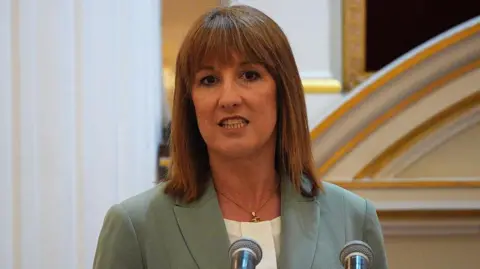The UK government is contemplating a significant change in its financial assessment protocol by potentially shifting to an annual evaluation of public finances, a proposal initiated by the International Monetary Fund (IMF). Currently, the Office for Budget Responsibility (OBR) conducts evaluations biannually to determine if the government complies with its borrowing limits. This proposed annual assessment could introduce more flexibility into fiscal management, reducing the pressure to frequently modify policies in order to adhere to these guidelines.
The context surrounding this discussion indicates a need for stability in fiscal policy. As indicated by the IMF, the frequent adjustments based on OBR forecasts, such as the recent announcement of £5 billion in health-related welfare cuts by Chancellor Rachel Reeves—which subsequently faced reversal after intra-party dissent—may hinder productive policymaking. The IMF’s suggestion aims to prevent impulsive decisions and to allow for a more measured response to fiscal variables that can influence borrowing conditions, thereby strengthening the government’s credibility in the eyes of financial markets.
The IMF’s assessments during its annual review of the UK economy have noted the government’s bold agenda for pro-growth reforms and commended the medium-term borrowing strategies as credible. Nevertheless, the organization warns that there are notable risks associated with the governmental fiscal strategy that need to be carefully managed. The UK’s vulnerability to economic shocks, driven by factors such as underperforming growth or unexpected interest rate changes, has been highlighted by the IMF, which stresses the importance of having adequate buffers in place.
To mitigate potential breaches of fiscal rules, the IMF has proposed several recommendations. These include revising the state pension ‘triple lock’, broadening the applicability of Value Added Tax (VAT), implementing means-testing for various benefits, and introducing co-payments for wealthier users of the National Health Service (NHS). Such measures could create additional revenue streams to address economic volatility and maintain compliance with fiscal standards.
This proposal from the IMF signals an implicit acknowledgment by the UK government that the existing policy of biannual assessments may create an environment where policymakers frequently alter plans in a bid to meet stipulated targets. Engaging with this advisory could lead to a shift in the timing and nature of tax adjustments in the upcoming autumn budget, as the Chancellor seeks to develop a more substantial financial buffer against a fluctuating global economy.
In light of the IMF’s findings, officials from the Treasury have committed to uphold the government’s fiscal rules, labeling them as non-negotiable while welcoming the IMF’s recommendations intended to enhance policy stability. The urgency for action is underscored by recent analysis from the Institute for Fiscal Studies, which has recommended a more relaxed borrowing target that could relieve pressure on tax and expenditure adjustments.
Specific fiscal rules governing the UK government’s finances include mandates that everyday expenses should be funded through tax revenue rather than borrowing. Furthermore, debt levels relative to the national income are expected to decrease by the end of the parliamentary session in 2029-30. In her response to the IMF report, Chancellor Reeves emphasized the governmental focus on sustainable economic recovery and the efforts being deployed to tackle underlying economic issues inherited from previous administrations.
In conclusion, the UK government’s contemplation of an annual public finance assessment reflects a desire to adopt a more deliberate and respondible fiscal strategy. As global economic conditions remain unpredictable, this recalibration may provide the necessary adaptability to navigate future fiscal challenges while also maintaining a commitment to proactive economic governance.












